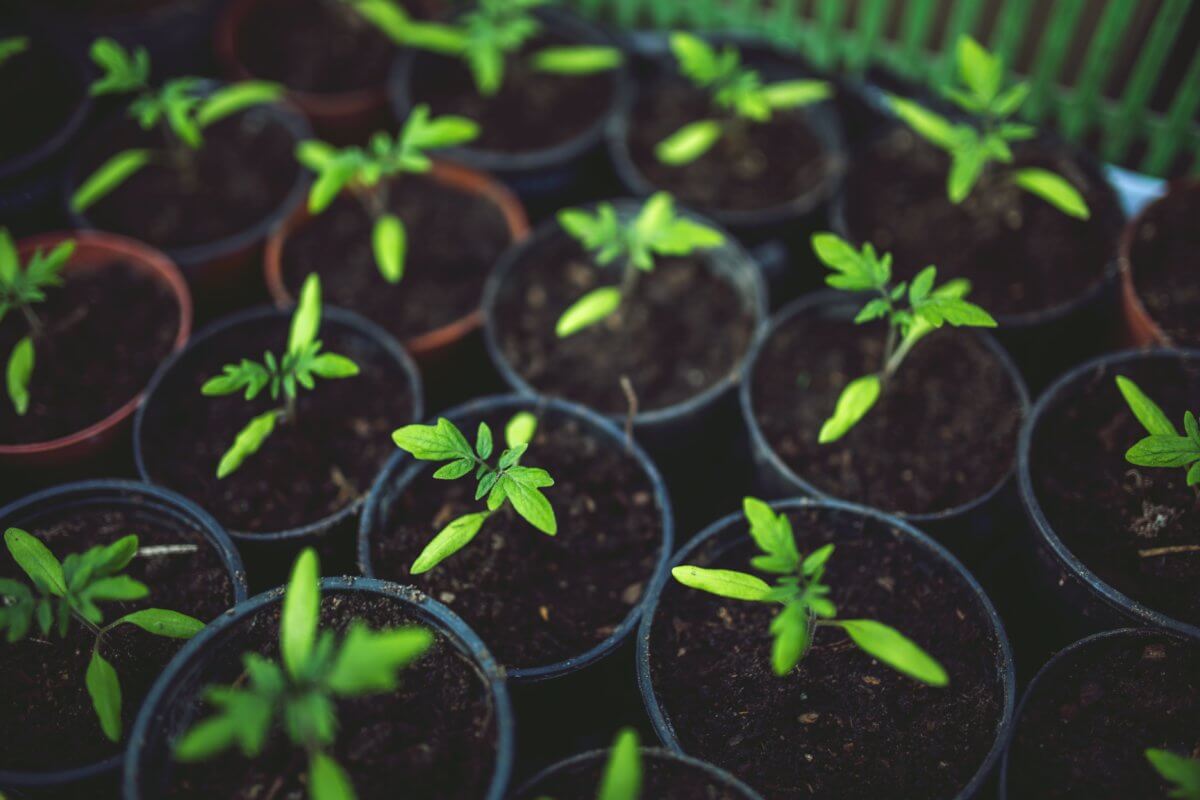Intuitively, growing food must be good for the Earth. At its purest, it’s an alchemy of soil, water, sunlight and air. Tiny seeds germinate, take root and thrive: and humans have been harnessing this process for millennia. Somewhere along the way, though, we messed up. Far from being “natural” and earth-friendly, commercial food production contributes between 20-30 per cent of global greenhouse gas emissions. Could this environmental burden be alleviated by home gardening? And just how eco-friendly is growing your own food anyway?
Peaches from the USA, coconuts from Thailand. We’ll keep seeing these season-defying fruits in big supermarket chains, even as we shiver through the Canberran winter. Global food exports mean that consumers now have more choice, year-round – and the planet suffers for it. Farm-to-shop transport, or “food miles”, are a huge contributor of greenhouse gas emissions. Some estimates put transport at 50 per cent of the emissions for fruit and vegetables (the rest being farm production, fertilisers and storage).
Slashing these transport distances is a major benefit of home gardening. Instead of tomatoes from Italy (16,000km) and blueberries from China (9,000km), your food miles become “garden-to-kitchen”, measured in metres, powered by your legs.
Along the commercial food supply-chain, storage and refrigeration are energy-hungry steps. Food that won’t be ripe for months is picked, then kept in an almost sci-fi suspended animation, until it arrives in our shops. All of this uses energy, whereas you only pick food from your own garden when it’s ripe, and your personal storage emissions are much lower.
Supermarkets also throw packaging at consumers who don’t need it – but it isn’t always pointless. It’s something I only learnt recently, a sign of my privilege in an ableist world, but pre-packaged foods are essential for many people with disabilities or mobility impairments. Clearly, we don’t want to take away all plastic if it takes away their independence – an eye-opening opinion piece in Metro by Shona Louise makes that clear.
However, on the whole, supermarkets would do well to reduce their packaging. Lone lettuces, cucumbers and capsicums get wrapped up for a few days or weeks, then the plastic is discarded. That disposable plastic lasts centuries in land-fill, an unjustifiable lifetime for a single-use item.
The recent #leaveitontheshelf campaign, where shoppers refuse to buy veggies in plastic, shows many consumers’ frustration about excessive packaging. It’s a good start, and hopefully, some of these people are also considering home-grown. Corncobs won’t come individually smothered in cling-wrap if you grow them yourself.
At the other end of the food story, is what to do with the waste. Backyard composting has several benefits, namely that it diverts food waste from landfill. Food releases greenhouse gases like methane wherever it breaks down, and that includes in backyard compost bins. However, in the compost, food produces far less methane than in landfill. It also decreases reliance on energy-intensive manufactured fertilisers, manure, and compost products, so the emissions and packaging from those supply chains are avoided.
Surprisingly little research looks at the eco-benefits of gardening as a whole (versus composting or packaging alone). Helpfully, one recent study modelled the emissions of home gardens by combining composting, the environmental savings from not buying commercial vegetables, and using recycled greywater for irrigation. They predicted that every one kilogram of backyard vegetables would save an impressive two kilograms of CO2 emissions, compared to industrial farming. It’s encouraging to see the intuitive benefits of gardening supported with data, and hopefully, more detailed research will appear soon.
But gardening isn’t all sunflowers and rainbows. My own low-point was going hand-to-hand with a wolf spider. The spider lost, but not without some choice expletives from me. Someone – I’m looking at you, possums of Canberra – ate my zucchini seedlings, and the January sun nearly fried my tomatoes on the vine. Gardening can be a battle, with random results, and many possible pitfalls.
Students especially come up against logistical barriers to gardening, namely space and cost limitations. As to space, several authors have written books on optimising small spaces. Even basil on a windowsill saves transport and packaging emissions. Cost is a bit more difficult to reconcile, because a carrot crop that never sprouts can feel like money down the toilet. The best way to get a return on your money is to look after the plants well. Hopefully a seven dollar tomato plant will give you several punnets later, because the higher the yield, the more money saved.
While not everyone has the means to garden, particularly at this student stage-of-life, the research shows that it really does decrease your carbon footprint. Avoiding long transport distances, growing with the seasons, cutting out plastic: home gardens subvert the current system where growing food costs the Earth.
And it’s rewarding. I planted three sprouting potatoes in November, and fingers crossed, I’ll soon get to unearth a few kilos of carbohydrate gold. Compared to prosaic supermarket aisles, there’s definite magic in a little soil, water, sunlight and air.
We acknowledge the Ngunnawal and Ngambri people, who are the Traditional Custodians of the land on which Woroni, Woroni Radio and Woroni TV are created, edited, published, printed and distributed. We pay our respects to Elders past and present. We acknowledge that the name Woroni was taken from the Wadi Wadi Nation without permission, and we are striving to do better for future reconciliation.
